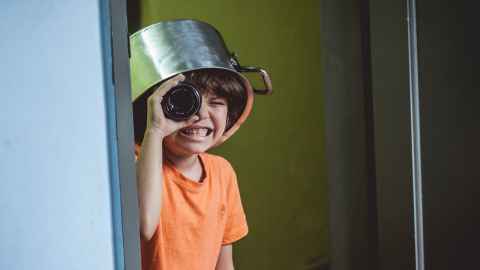What science says about household chaos
1 May 2020
Every household with children faces the daily experience of chaos and sometimes, hopefully, a semblance of order. To study this universal phenomenon researchers have devised the CHAOS (Confusion, Hubbub and Order) scale to measure household chaos and order.

University of Auckland researchers, Dr Samantha Marsh, Dr Rosie Dobson and Professor Ralph Maddison, have reviewed the global evidence on the links between household chaos and the adverse impacts of household chaos on child development.
“We know that increased chaos in a child’s home, which encompasses things like high levels of background noise, constant rushing, a lot of commotion and confusion, and lack of family routines, has a negative effect on almost every child development outcome, from cognitive development to socio-emotional well-being,” says Marsh, a Research Fellow in the School of Population Health.
A household ranking high on the CHAOS scale is also associated with negative parenting practices, which has implications for the parent-child relationship. At the same time we know that the quality of the parent-child relationship is fundamental to the well-being and development of a child.
Marsh and her team reviewed 112 studies on households, the majority in the United States and the United Kingdom. Her research was published in BMC Public Health last month.
She says, ”in the parenting advice space, there’re a lot of messages about how to ‘re-align’ family time, to slow down the ‘pace of childhood’ by cutting back on unnecessary activities, toys and screens, and promoting daily routines like family meals to support well-being.”
Marsh says these are common sense responses. But she cautions that a swing too far towards order and routine might lead to a household that lacks warmth and spontaneity, making it harder for a caring parent-child relationship to grow.
Her review was completed before Covid-19 and the need for lockdown.
Children around the world are now spending an unprecedented amount of time at home. While we don’t know whether children living in low-chaos households will fare better, intuitively, we might expect they will.
“These children will likely have greater opportunities to complete their home-schooling tasks in a less distracting environment. They will also likely have more time dedicated to free, non-screen based play – the kind of play that supports their emotional well-being and development.”
Marsh says a potential positive to come from Covid-19 is that with so many children at home, it’s an opportunity for them to experience more positive and supportive parenting, which is good news for the parent-child relationship. And reducing household chaos may be one way to facilitate this relationship.
Media contact
Gilbert Wong | Research Communications Manager
Mobile: 021 917 942
Email: gilbert.wong@auckland.ac.nz